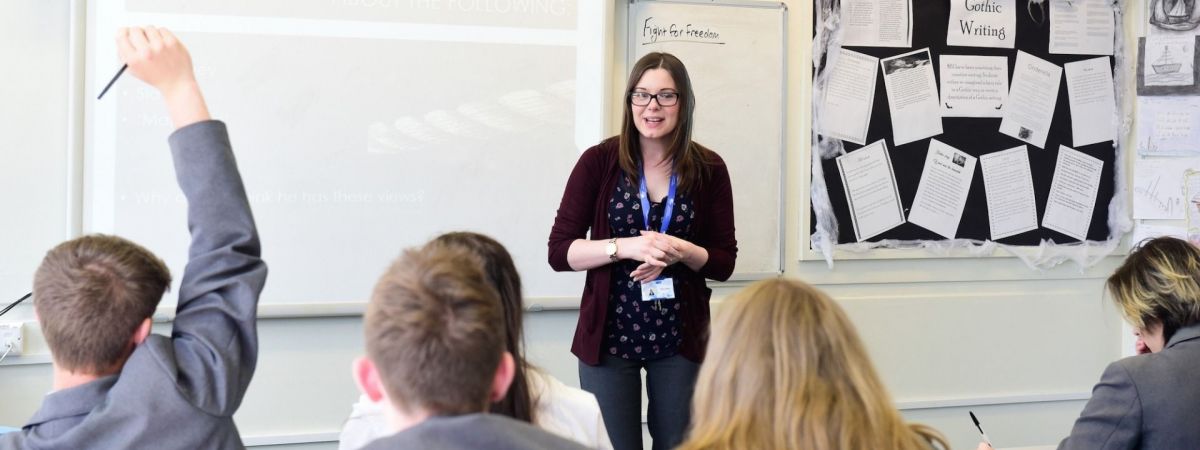Alex Wynter: The publicity on the new GCSEs could hardly have been worse
Alex Wynter, a parent of a 16-year-old and supporter of PTE, has written this blog for us:
The two great pillars of educational reform of the past two decades are academization and the new changes to the GCSE to make it – in the Department for Education’s understatement – ‘more demanding’. Cracks are surely beginning to show in the former, while only the reintroduction of corporal punishment could have generated worse publicity than the latter.
It all threatens to leave us back where we started 20 years ago, with unresolved issues like social mobility in reverse and rising graduate underemployment, and some new ones like plummeting teacher recruitment, ‘off-rolling’, and, if the experience of the GCSE ultra-marathon is indicative, another very troubling strand of teenage mental-health issues.
The Guardian’s Sally Weale, in the first week of the GCSE ordeal, produced a disturbing piece about the ‘most dreaded and feared set of public exams England’s teenagers have ever sat’ that effectively accused Michael Gove of driving young examinees to attempt suicide; the print version included (old Fleet Street trick) an unflattering library shot of the former Secretary of State for Education.
She followed this up with another article about GCSE candidates reporting ‘mental exhaustion, panic attacks, crying, nosebleeds, sleepless nights, hair loss and outbreaks of acne’, and, once again, an attempted suicide.
My own 16-year-old daughter, thank God, has just emerged from this ordeal in more or less one piece, having sat 23 exams to cover ten subjects over six weeks. There is, of course, only one way to approach an onslaught like this: cynically, focusing relentlessly on whatever one can glean about the test and such past papers as are available; cramming key facts, highlighting, day-prior binge revision, rather than the kind of wide-ranging exploratory reading and understanding Gove would probably claim to favour.
Having tried for years to convince our children that education is the most worthwhile thing in their lives, we feel as if we just ceded a slice of moral high-ground.
Meanwhile, also in the Guardian, Laura McInerney asserts flatly that the academies part of the dream of a ‘big society’ run by its citizens ‘has not worked’, evidenced by the string of scandals and controversies centred largely on money. The only local heroes we need now, she suggests, ‘are politicians with the guts to stop it’.
This is all strong stuff. I largely agree with these journalists’ thrust, even if the hidden political agenda in critiquing ‘rigorous’ GCSEs and semi-privatized primary and secondary academies is indeed not so hidden.
The conclusion I draw from these debates is that we are, in England at least, compared to places like Estonia, Singapore, the Palestinian Territories, even perhaps France, further away than ever from a national consensus on what education is really for and how best to conduct it.
Sally Weale’s first article contained a magnificent bit of DfE spin: ‘In order for pupils to be successful, rigorous examinations are vital,’ she quoted the department saying in defence of the new GCSEs. For good measure it went on to claim (my emphasis) that ‘[t]his government has taken steps to reduce examination burdens upon young people.’
What the first part of that statement should actually read, of course, is this: ‘In order for clever pupils to be successful, rigorous examinations are vital to filter out the rest.’ Both parts of the DfE statement are closer to the opposite of the truth.
And there you have it. Our system has long been implicitly binary: academic or non-academic, grammar or secondary modern, university or not, pass or fail. Now the attempt to make it more explicitly so through the botched restoration of ‘rigour’ at GCSE level looks like it could trigger a revolt. In the massive quantitative expansion of the exam burden alongside the qualitative tightening, one has to suspect the wrecking hand of Gove’s civil-service nemeses
Yet the reality almost everyone, especially on the Left, still seems reluctant to face remains this: if the education sector doesn’t ‘sort’ young people, employers will, and on the basis of those old standbys, contacts and money (to subsidize internships), as much as anything else, supplemented by golf-course networking.
These are broad-brush comments, I admit, but the Right may have had no more sustainable an answer to easy-peasy exams and graduate underemployment than – if the worst prognosis for academization is true – the centre Left had to state-school failure.
Could we perhaps all agree to banish politics from the sector and reconfigure it to be less win-or-lose and closer to what parents actually seek for their children: to emerge from secondary or tertiary education with at least the makings of marketable expertise, using mind or hand or both?
Let’s ditch the league-table-driven, tractor-factory system in favour of one in which the five groups of gateway English and maths, chosen academic subjects such as history, geography, science and languages, arts and crafts, technical skills, and sport are all given roughly equal weight. Starting in some free schools perhaps?
Virtually everyone can excel at something and go on to make a living from it. Not everyone can get ten GCSEs worth having.
The views expressed here do not necessarily reflect those of PTE or its employees.
